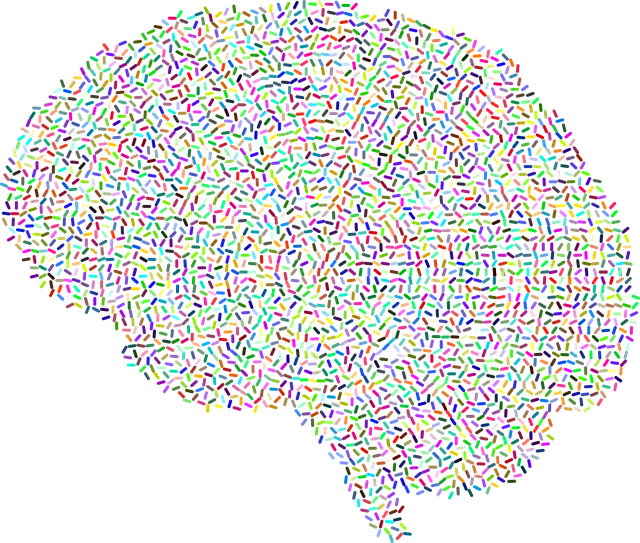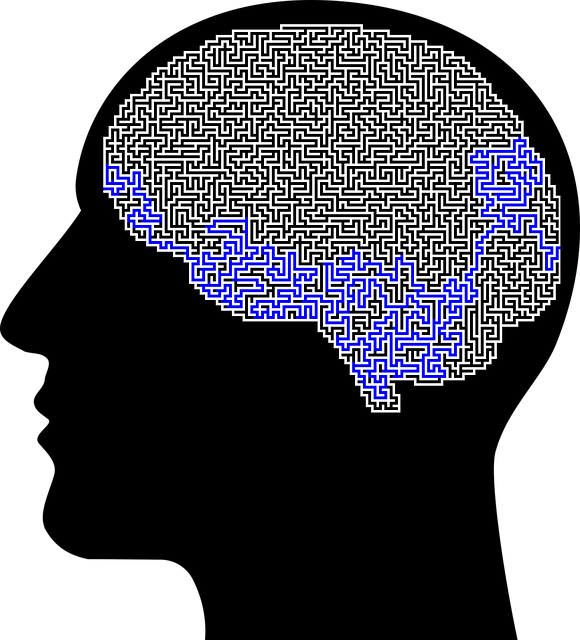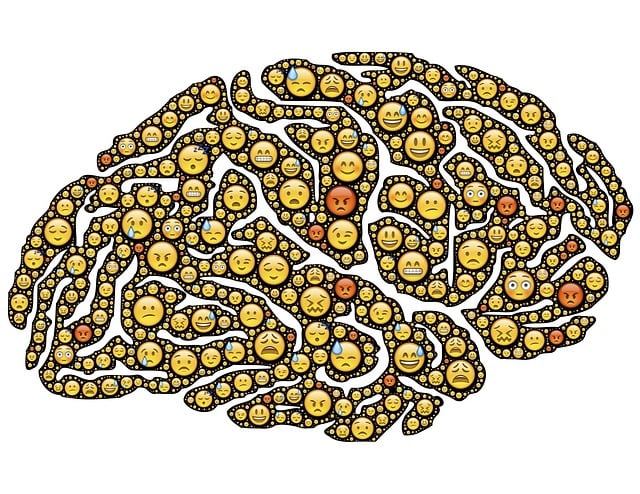Parker Children Therapy (PCT) employs a multi-faceted approach to mental health data analysis, combining structured clinical assessments, client narratives, surveys, and observation notes for a comprehensive understanding. They leverage statistical modeling and machine learning to identify trends, evaluate treatment outcomes, and personalize therapy. By addressing stigma, implementing burnout prevention strategies, and prioritizing cultural competency training, PCT enhances data interpretation and improves service quality. This data-driven approach leads to effective interventions, community outreach programs, and public awareness campaigns, ultimately fostering emotional well-being among children and adolescents.
Mental health data analysis is a powerful tool for understanding complex psychological trends. This article explores the process from collection and sources of mental health data, to advanced analysis techniques that reveal profound insights. We dive into interpreting results, identifying patterns, and highlighting practical applications through a case study on Parker Children Therapy. Additionally, we address challenges and ethical considerations in this evolving field. Discover how data-driven approaches are revolutionizing mental healthcare, including the impact of Parker Children Therapy.
- Understanding Mental Health Data: Collection and Sources
- Data Analysis Techniques for Mental Health Insights
- Interpreting Results: Identifying Patterns and Trends
- Parker Children Therapy: A Case Study in Practical Application
- Challenges and Ethical Considerations in Mental Health Data Analysis
Understanding Mental Health Data: Collection and Sources

Understanding Mental Health Data is a multifaceted process that begins with recognizing diverse sources and methods of collection. At Parker Children Therapy, we emphasize the importance of comprehensive data gathering to accurately reflect the complexity of mental health issues among various demographics. This involves not only structured clinical assessments but also qualitative data from client narratives, survey responses, and observation notes. By integrating these sources, therapists and researchers gain a holistic view of individual experiences and community trends.
Addressing mental illness stigma reduction efforts is integral to effective data interpretation. Burnout prevention strategies for healthcare providers, including cultural competency training, play a significant role in ensuring sensitive and accurate data collection. Such training equips professionals with the skills to navigate cultural nuances, reduce biases, and foster inclusive practices that encourage open communication, ultimately enhancing the quality of mental health services and data analysis outcomes.
Data Analysis Techniques for Mental Health Insights

In the realm of mental health, data analysis is a powerful tool for gaining valuable insights and enhancing patient care, particularly when tailored to the unique needs of children. Techniques such as statistical modeling and machine learning algorithms can uncover patterns within large datasets, enabling professionals at Parker Children Therapy to identify trends in various mental health conditions. By analyzing demographics, treatment outcomes, and the effectiveness of different interventions, therapists and researchers can make informed decisions. For instance, data might reveal specific therapeutic approaches that show higher success rates for certain types of trauma support services, leading to more targeted and effective care.
Integrating Mental Wellness Journaling Exercise Guidance within these analytical processes can offer a holistic perspective. By studying patient narratives and self-reported symptoms over time, therapists can gain deeper insights into individual experiences. This qualitative data complements quantitative analysis, providing a comprehensive understanding of mental health journeys. Furthermore, promoting Mental Health Awareness through such analyses empowers individuals to recognize their own emotional patterns and seek appropriate support.
Interpreting Results: Identifying Patterns and Trends

When analyzing mental health data, one of the critical steps is interpreting the results to gain meaningful insights. This process involves identifying patterns and trends within the collected information, which can then guide evidence-based practices and interventions. By examining individual cases and broader trends, healthcare providers at Parker Children Therapy can uncover valuable connections between various factors affecting a client’s mental well-being. For instance, consistent trends across multiple clients might reveal specific challenges within a community, prompting targeted initiatives like Community Outreach Program Implementation or tailored Empathy Building Strategies to enhance Cultural Competency Training among healthcare providers.
Through meticulous data interpretation, Parker Children Therapy can identify recurring themes and develop comprehensive solutions. These insights could highlight the success of certain therapeutic approaches, the need for additional resources in specific areas, or cultural influences that significantly impact a client’s journey. Such findings empower therapists to make informed decisions, adapt their practices, and ultimately deliver more personalized and effective care.
Parker Children Therapy: A Case Study in Practical Application

Parker Children Therapy (PCT) serves as a compelling case study demonstrating the practical application of mental health data analysis and interpretation. By meticulously collecting and analyzing data from various sources, including therapy sessions, parental feedback, and self-care practices, PCT gains insights into children’s emotional regulation patterns and areas requiring support. This data-driven approach enables them to tailor interventions and develop personalized treatment plans that cater to each child’s unique needs.
The integration of these strategies has significantly contributed to the success of PCT’s programs. They’ve witnessed improved emotional resilience among participants, fostering a sense of self-care practices and enhanced coping mechanisms. Furthermore, their findings have played a crucial role in shaping public awareness campaigns development, ensuring that resources are allocated effectively to address mental health challenges prevalent among children.
Challenges and Ethical Considerations in Mental Health Data Analysis

Mental health data analysis is a complex process that comes with unique challenges and ethical considerations. One significant hurdle is ensuring the privacy and confidentiality of sensitive patient information, such as personal details and treatment records. At Parker Children’s Therapy, for instance, maintaining the security of this data is paramount to building trust with clients and their families. Ethical guidelines must be rigorously followed to protect against unauthorized access or misuse, which could have severe consequences for individuals’ well-being.
Another challenge lies in accurately interpreting quantitative and qualitative data to gain meaningful insights into mental health trends. This involves careful consideration of potential biases inherent in data collection methods, as well as the context in which the information was gathered. Moreover, cultural sensitivity is crucial when analyzing data from diverse populations, ensuring that interpretations align with nuanced community perspectives on mental health. Incorporating practices like compassion cultivation, as promoted by some Community Outreach Program Implementations, can foster a more holistic understanding of individuals’ experiences and contribute to effective interventions.
Mental health data analysis is a powerful tool for understanding complex psychological trends, as demonstrated by the case study of Parker Children Therapy. By employing various analysis techniques and interpreting results meticulously, professionals can identify patterns and gain valuable insights into children’s mental well-being. However, navigating this field comes with challenges and ethical considerations that must be addressed to ensure responsible and effective data handling. Through ongoing research and practical applications like Parker Children Therapy, the future of mental health support can be enhanced, offering better care for those in need.














